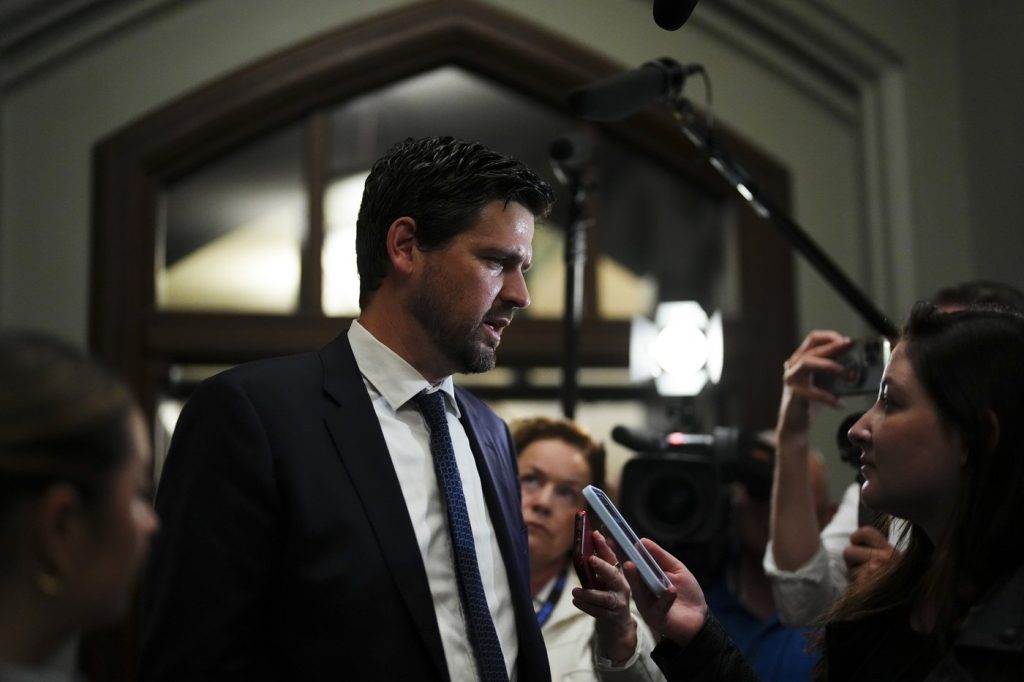OTTAWA – Justice Minister Sean Fraser announced that the federal government intends to re-evaluate its online harms legislation during the summer, though the specifics of the bill remain uncertain. This will mark the Liberal government's third attempt to pass legislation aimed at addressing harmful online behavior.
Fraser shared in an interview that the government has yet to determine whether to rewrite or simply reintroduce the Online Harms Act, initially introduced in 2024 but ultimately not passed. He indicated that Canadians can expect legislative measures that target issues such as deepfakes and child exploitation to be incorporated into forthcoming reforms.
In their election platform, the Liberal government pledged to criminalize the distribution of non-consensual sexual deepfakes and to introduce a bill aimed at protecting children from online exploitation and extortion. They also promised to equip law enforcement and prosecutors with more tools to address these crimes. According to Fraser, advancements in artificial intelligence are shaping ongoing discussions regarding the legislation.
The emergence of generative AI has significantly altered both the online landscape and daily life since the federal government first proposed the online harms legislation. Fraser emphasized the importance of adapting policy to these changing circumstances, stating, “The world changes and governments would be remiss if they didn’t recognize that policy needs to shift.”
The online harms legislation was first suggested by former heritage minister Steven Guilbeault in 2021. Due to widespread criticism, the file was later transferred to the justice minister. Guilbeault has since returned to his previous portfolio, which has been renamed Canadian Identity and Culture, while Prime Minister Mark Carney established a new Ministry of Artificial Intelligence helmed by rookie MP Evan Solomon. Fraser anticipates “significant engagement” with both Guilbeault and Solomon, but the lead minister for the legislation will be determined later.
The initial version of the Online Harms Act faced backlash from critics who argued that the provision requiring platforms to remove harmful content within 24 hours could infringe on free speech. In 2024, Fraser's predecessor, Arif Virani, revised the bill to limit the 24-hour takedown requirement to content that sexually exploits children or revictimizes survivors, as well as non-consensual intimate content, including deepfakes. The bill also mandated social media platforms to outline their strategies for mitigating risks to users, along with a duty to protect children.
However, the government’s inclusion of amendments related to hate speech within the same legislation raised concerns about potentially suppressing free expression. Virani had announced plans to separate these contentious provisions into a different bill, but this separation did not occur before the federal election in spring 2025, resulting in the legislation's passage being halted.
As of now, Fraser has not made a decision regarding whether to reintroduce the online harms legislation as a single bill or to split it into two separate pieces. He stated, “That is precisely the kind of thing that I want to have an opportunity to discuss with stakeholders, to ensure we’re moving forward in a way that will create a broad base of public support.”
Fraser further indicated that the government could either modify existing versions of the legislation or proceed with the form in which it was originally proposed. He expressed his desire for a comprehensive review of the legislative path forward, where he can glean insights from those best acquainted with online safety for children.
Although the federal government has not established a timeline for the introduction of this legislation, it may feature some online harms measures within a crime bill Fraser intends to present in the fall. He clarified that provisions concerning online harms that specifically address criminal activity could be integrated into one legislative package, while a broader set of online harms reforms might be addressed at a later date.











